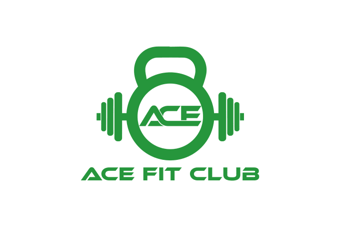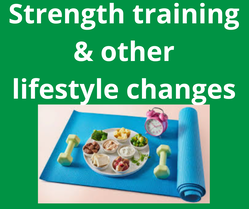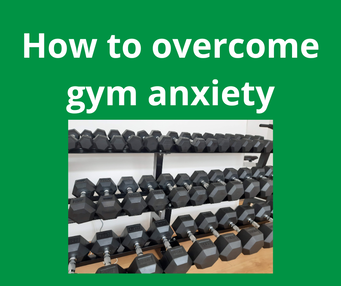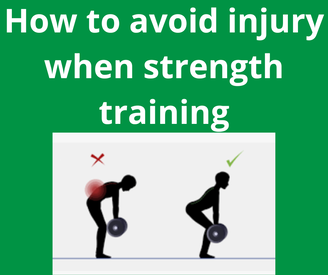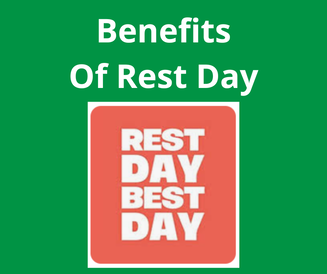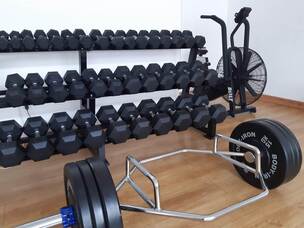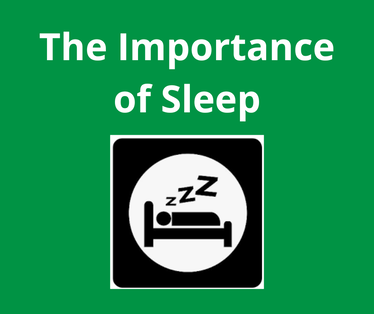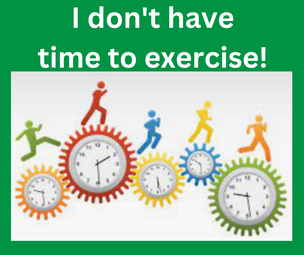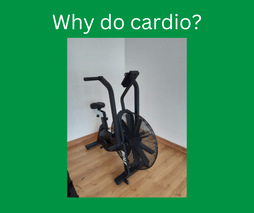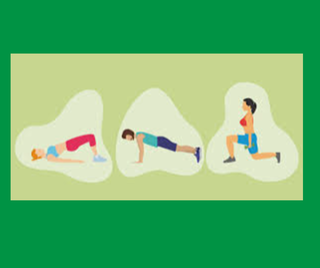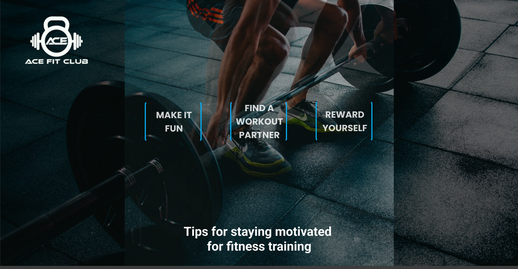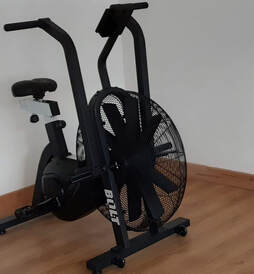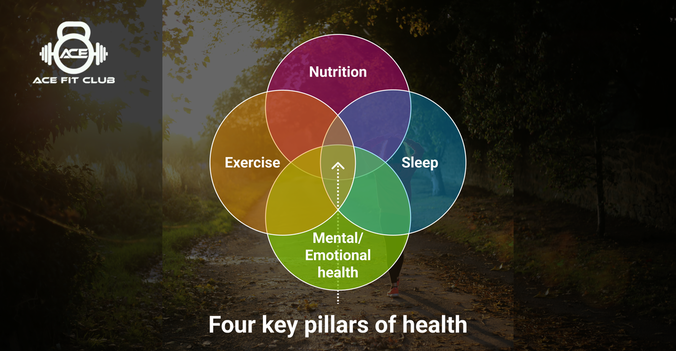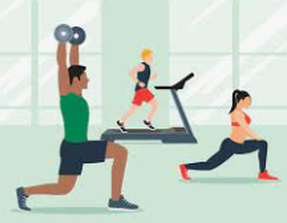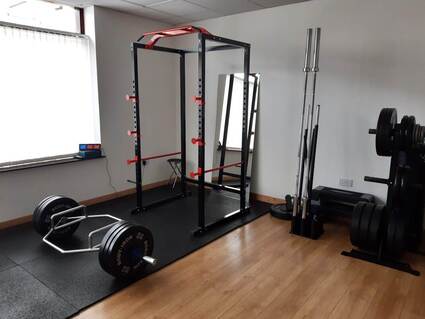|
Brazilian Jiu-Jitsu (BJJ) has risen in popularity over the years, captivating both martial arts enthusiasts and fitness enthusiasts alike. Originating from traditional Japanese Jiu-Jitsu and adapted and refined in Brazil, BJJ is a grappling martial art that focuses on ground fighting and submission holds. Beyond its effectiveness as a self-defense system, BJJ offers a myriad of physical, mental, and social benefits that make it a truly holistic and rewarding practice. In this blog, we will explore the numerous advantages of training Brazilian Jiu-Jitsu and why it continues to capture the hearts and minds of practitioners around the world. 1. Physical Fitness: One of the most apparent benefits of BJJ training is its impact on physical fitness. Regular practice helps improve cardiovascular endurance, strength, flexibility, and overall conditioning. The dynamic nature of BJJ requires full-body engagement, leading to increased muscle tone and improved coordination. BJJ offers an engaging and enjoyable way to stay fit, making it easier to stick to a consistent training routine. 2. Self-Defence Skills: BJJ is renowned for its practical self-defence applications. The focus on ground fighting and submissions empowers practitioners to defend themselves effectively, even against larger and stronger opponents. Learning how to control and submit an opponent without causing excessive harm is a valuable skill for self-protection in real-life situations. 3. Mental Discipline: Beyond the physical benefits, BJJ is a mentally challenging discipline. It requires practitioners to think strategically, anticipate opponents' moves, and execute techniques with precision. Training in BJJ cultivates mental discipline, focus, and problem-solving abilities. This mental fortitude extends beyond the mats, positively influencing various aspects of life, such as decision-making, resilience, and stress management. 4. Increased Confidence: As practitioners progress in their BJJ journey, they develop a sense of accomplishment and confidence in their abilities. The knowledge of self-defence techniques and the ability to handle physical confrontations foster a strong sense of self-assurance. Additionally, the supportive and encouraging environment of BJJ clubs helps boost confidence and self-esteem, promoting personal growth both on and off the mats. 5. Stress Relief and Mental Well-being: Engaging in BJJ can be a fantastic stress reliever. The intensity of training allows practitioners to channel their energy and frustrations positively, reducing stress levels and promoting mental well-being. The camaraderie among training partners and the focus on mindfulness during practice contribute to a positive and emotionally uplifting experience. 6. Community and Social Interaction: BJJ offers a strong sense of community and fosters lasting friendships among practitioners. Training partners support each other in their journey of growth and development. The BJJ community is known for its inclusivity and welcoming nature, making it easy for newcomers to feel at home and build connections with like-minded individuals. 7. Versatility and Adaptability: BJJ is a martial art that caters to people of all ages, sizes, and athletic abilities. Whether you are young or old, a beginner or an experienced athlete, BJJ provides a path for personal progress and development. The techniques can be adapted to suit individual strengths and limitations, allowing everyone to find their own unique style of expression. Conclusion: Brazilian Jiu-Jitsu offers a plethora of physical, mental, and social benefits, making it much more than just a martial art. Through BJJ, practitioners can enhance their physical fitness, self-defence skills, mental discipline, and overall well-being. The strong community and supportive environment create a space where individuals can grow and flourish together. If you're looking for a challenging and rewarding discipline that enriches both body and mind, Brazilian Jiu-Jitsu might be the perfect fit for you.
0 Comments
In our fast-paced and sedentary modern lifestyle, taking care of our health often takes a backseat. However, investing time and effort into improving our physical and mental well-being is essential for leading a fulfilling life. Among the various strategies to achieve this, strength training and adopting other lifestyle changes can play a transformative role. In this blog, we will explore the benefits of strength training and discuss additional lifestyle modifications that can significantly enhance our health and overall well-being. 1. The Power of Strength Training: Strength training, also known as resistance or weight training, involves performing exercises that target specific muscle groups to build strength, endurance, and muscle mass. The benefits of incorporating strength training into your routine are numerous: a. Increased Muscle Mass: As we age, we naturally lose muscle mass. Strength training helps counteract this process by stimulating muscle growth, leading to improved strength and balance. b. Enhanced Metabolism: Muscle tissue is metabolically active, meaning it burns more calories even at rest. Strength training can boost your metabolism, aiding in weight management. c. Stronger Bones: Regular resistance exercises promote bone density, reducing the risk of osteoporosis and fractures, particularly in older adults. d. Improved Mental Health: Strength training has been linked to reduced symptoms of anxiety and depression, promoting better mental well-being. e. Chronic Disease Management: Engaging in strength training can help manage chronic conditions such as diabetes, arthritis, and heart disease by enhancing overall physical fitness. 2. Cardiovascular Exercise: Incorporating cardiovascular exercises, such as running, cycling, swimming, or brisk walking, into your routine can further enhance your overall health. Cardio exercises increase heart rate and improve cardiovascular health, leading to better stamina, increased lung capacity, and reduced risk of heart diseases. 3. Flexibility and Mobility: Don't forget to include flexibility and mobility exercises like yoga or Pilates. These activities help improve range of motion, reduce muscle stiffness, and enhance overall physical flexibility. Moreover, they can aid in reducing the risk of injuries during strength training and other physical activities. 4. Balanced Nutrition: No lifestyle change is complete without paying attention to nutrition. Fueling your body with a balanced diet rich in fruits, vegetables, whole grains, lean proteins, and healthy fats is crucial. Adequate nutrition supports your fitness goals, helps maintain a healthy weight, and provides the necessary nutrients for overall well-being. 5. Sufficient Sleep: Sleep is the body's natural way of rejuvenating and repairing itself. Prioritize getting 7-9 hours of quality sleep each night to support your physical and mental recovery, as well as to maintain optimal cognitive function and emotional well-being. 6. Stress Management: Chronic stress can take a toll on your health. Incorporate stress-reduction techniques into your routine, such as meditation, deep breathing exercises, spending time in nature, or engaging in hobbies you enjoy. These practices can help reduce stress hormones and promote a sense of calm and balance. 7. Hydration: Proper hydration is essential for overall health. Drink an adequate amount of water throughout the day to support bodily functions, maintain energy levels, and promote healthy skin. 8. Social Connections: Nurturing social connections and maintaining healthy relationships can significantly impact your mental health and well-being. Engage in activities with friends, join social groups, and cultivate meaningful connections with family and loved ones. Conclusion: Improving your health and well-being involves a holistic approach that encompasses various aspects of your lifestyle. By incorporating strength training, cardiovascular exercises, flexibility training, balanced nutrition, sufficient sleep, stress management, hydration, and social connections, you can set yourself on a path towards a healthier and more fulfilling life. Remember that small changes add up over time, and the key is consistency and a positive mindset. Take the first step today, and you'll soon witness the incredible transformation in your overall health and well-being. #personaltraining #personaltrainer #weights #weighttraining #strength #gym #fitness #fitnessjourney #fitnessmotivation #cardio #weightloss #coach #maynooth #kilcock #clane #celbridge #leixlip 5/8/2023 0 Comments Will I Lose All My Strength Gains If I Don't Lift Weights for 2 Weeks While on Holidays?Many fitness enthusiasts and athletes often wonder about the potential consequences of taking a break from their regular workout routine, especially when they plan vacations or holidays. It's a valid concern, as putting in weeks or even months of hard work to build strength and muscle can feel at risk when you step away from the gym for an extended period. In this blog, we will explore the effects of taking a two-week break from lifting weights while on holidays and provide insights into how to maintain your hard-earned gains during that time. The Body's Adaptation Process Before we dive into the details, it's essential to understand how the body adapts to strength training. When you lift weights, your muscles undergo microscopic damage, leading to muscle protein breakdown. After your workout, during the recovery and rest phase, your body repairs the damaged muscle fibers, making them stronger and more substantial than before. This process is known as muscle hypertrophy. Muscle Memory The concept of muscle memory comes into play when discussing short breaks from training. Muscle memory refers to the phenomenon where your muscles can bounce back more quickly to their previous strength and size after a period of detraining. This ability is due to the increased number of nuclei in your muscle cells, which persists even during periods of inactivity. These additional nuclei act as a foundation for future muscle gains, making it easier to regain lost muscle mass after a break. Effects of a Two-Week Break The effects of a two-week break from weightlifting are not as severe as you might fear. While there may be some loss of muscle mass due to reduced protein synthesis and an increase in muscle protein breakdown during inactivity, the overall impact is relatively minor, especially considering the muscle memory effect. 1. Strength Loss: Studies have shown that after a two-week break, you may experience a slight decrease in strength, particularly in the first few days upon returning to your training routine. However, this loss is mainly due to neurological adaptations and not significant muscle atrophy. 2. Muscle Mass Loss: Some decrease in muscle mass is expected during the break, but it is mostly attributed to reductions in muscle glycogen stores and water content, rather than actual muscle protein loss. 3. Fatigue and Recovery: A well-timed break from intense workouts can actually be beneficial. It allows your central nervous system and joints to recover from the stress of training, reducing the risk of overuse injuries and mental burnout. Maintaining Strength Gains During the Break While you might not be able to lift weights during your holidays, there are strategies you can employ to minimize strength loss and maintain your gains: 1. Bodyweight Exercises: Incorporate bodyweight exercises into your holiday routine. Push-ups, squats, lunges, and planks can help maintain muscle activation and mitigate strength loss. 2. Stay Active: Engage in activities such as swimming, hiking, or playing sports. These activities may not replicate weightlifting, but they still provide resistance and keep your body moving. 3. Protein Intake: Ensure you consume an adequate amount of protein during your break. Protein is essential for muscle repair and recovery. 4. Adequate Rest: Use this time to prioritize sleep and rest. Adequate rest is crucial for muscle recovery and overall well-being. Conclusion While taking a break from lifting weights for two weeks during your holidays may result in some minor strength and muscle loss, it is important to remember that the body has a remarkable ability to bounce back due to muscle memory. This short break can even be beneficial in terms of recovery and injury prevention. Remember, the key to maintaining gains during this period lies in staying active and focusing on proper nutrition. So, enjoy your well-deserved break, and when you return to the gym, you'll find that you can quickly regain your previous strength and continue progressing towards your fitness goals. #personaltraining #personaltrainer #weights #weighttraining #strength #gym #fitness #fitnessjourney #fitnessmotivation #cardio #weightloss #coach #maynooth #kilcock #clane #celbridge #leixlip Strength training is a powerful way to enhance your overall fitness and achieve your desired physique. However, one of the most common questions that arise among beginners and even seasoned lifters is: "What weight should I use for strength training?" Selecting the right weight is crucial for optimizing your gains and preventing injuries. In this blog, we'll explore the factors to consider when determining the appropriate weight for your strength training workouts, so you can confidently achieve your fitness goals in a safe manner. 1. Understanding Your Fitness Level: Your current fitness level plays a significant role in determining the appropriate weight for your strength training exercises. Beginners should start with lighter weights to establish proper form and reduce the risk of injury. As you progress, gradually increase the weight to keep challenging your muscles and promoting continuous growth. 2. Goals and Repetitions: The weight you use for strength training should align with your specific fitness goals. If your primary aim is to build muscle size (hypertrophy), you'll typically use moderate to heavy weights with a rep range of 6 to 12 per set. For strength gains, lifting heavier weights with lower reps, usually in the 1 to 6 rep range, is more effective. Define your goals clearly and tailor your weight selection accordingly. 3. Listen to Your Body: Regardless of your fitness level or goals, it's essential to listen to your body. Pay attention to how your muscles feel during and after each exercise. If the weight is too light and you don't feel challenged, it might be time to increase it. Conversely, if you're straining excessively, risking injury, or sacrificing proper form, it's better to decrease the weight. 4. Warm-Up Sets: Always incorporate warm-up sets before your main strength training sets. Warm-up sets prepare your muscles and nervous system for the heavier lifts. Start with lighter weights and gradually increase the load until you reach your working weight for the main sets. 5. Progressive Overload: To continue making gains in strength training, you must apply the principle of progressive overload. This means gradually increasing the weight, reps, or sets over time to challenge your muscles further. Keep a training log to track your progress and ensure you're consistently pushing yourself. 6. Compound vs. Isolation Exercises: Compound exercises engage multiple muscle groups and require more significant effort, generally allowing you to lift heavier weights. On the other hand, isolation exercises focus on a single muscle group and may involve lighter weights. A balanced strength training program should incorporate both compound and isolation exercises. 7. Seek Professional Guidance: If you're uncertain about choosing the right weight or designing an effective strength training program, consider seeking guidance from a personal trainer. They can assess your fitness level, goals, and provide personalized advice to help you progress safely and efficiently. Conclusion: Selecting the appropriate weight for strength training is a crucial step towards achieving your fitness objectives. It's essential to consider your fitness level, goals, and exercise type while also listening to your body and following the principle of progressive overload. Remember, consistency and dedication are key to making steady gains in strength training. Embrace the process, stay patient, and celebrate every milestone as you work towards becoming a stronger, healthier version of yourself. Happy lifting! #personaltraining #personaltrainer #weights #weighttraining #strength #gym #fitness #fitnessjourney #fitnessmotivation #cardio #weightloss #coach #maynooth #kilcock #clane #celbridge #leixlip Going to the gym can be an exciting prospect for many people. It offers an opportunity to improve physical fitness, boost mental health, and connect with like-minded individuals. However, for some, the thought of stepping into a gym can evoke feelings of anxiety and self-consciousness. If you've ever experienced gym anxiety, rest assured you are not alone. Many people face this challenge when starting their fitness journey. In this blog, we will discuss practical tips to help you overcome gym anxiety and make the most of your gym experience. 1. Set Realistic Expectations: One of the primary causes of gym anxiety is the fear of being judged by others. It's essential to remind yourself that everyone starts somewhere, and no one becomes an expert overnight. Set realistic expectations for your fitness journey and understand that progress takes time. Embrace the fact that everyone in the gym is there to work on themselves, just like you are. 2. Educate Yourself: Gaining knowledge about gym equipment, workout routines, and proper form can significantly reduce anxiety. Spend time researching different exercises, watch tutorial videos, and ideal get yourself a personal trainer. The more you understand what you're doing, the more confident you'll feel in the gym environment. 3. Start Slowly: Don't feel pressured to jump into the most intense workout right away. Begin with simple exercises that you're comfortable with and gradually progress as you gain confidence and fitness levels. By starting slowly, you'll build a solid foundation and avoid potential injuries, which can further contribute to anxiety. 4. Choose the Right Gym/ studio: Selecting the right gym/ studio can make a world of difference in easing your anxiety. Visit a few local gyms/ studios and assess their atmosphere, cleanliness, and equipment availability. Look for a gym/ studio that aligns with your fitness goals and has a welcoming, non-judgmental environment. 5. Bring a Friend: Having a workout buddy can significantly reduce gym anxiety. If possible, bring a friend or family member with you to the gym. Having someone familiar by your side will provide emotional support, make the experience more enjoyable, and encourage accountability. 6. Focus on Yourself: Remember that everyone else at the gym is primarily focused on their workout, not on scrutinizing you. Focus on your form, and stay in the zone. The more you concentrate on your own progress, the less you'll worry about the perceptions of others. 7. Use Visualization Techniques: Visualization is a powerful tool to overcome anxiety. Before heading to the gym, take a few moments to imagine yourself performing exercises confidently and with ease. Visualization can help prepare your mind for the actual experience, making you feel more at ease when you arrive at the gym. Conclusion: Gym anxiety is a common hurdle that many people face, but it shouldn't hold you back from achieving your fitness goals. By implementing these practical tips, you can gradually build confidence and make the gym a positive and rewarding experience. Remember, the most important thing is to focus on your own journey, celebrate your progress, and embrace the process of becoming a healthier and fitter version of yourself. Take that first step, and you'll find that the gym can be an empowering and supportive environment for personal growth. #personaltraining #personaltrainer #weights #weighttraining #strength #gym #fitness #fitnessjourney #fitnessmotivation #cardio #weightloss #coach #maynooth #kilcock #clane #celbridge #leixlip Exercise usually helps keep you out of the doctor’s office, unless you hurt yourself in the process. Muscle strains and ligament sprains can happen to anyone, regardless of how fit you are. But taking a few minutes to warm up and cool down, or investing in protective workout gear, can help you avoid injuries and keep active! Here are a few tips to keep injury free: 1. Slow and steady Whether it’s training for a marathon or jumping back onto the golf course, be mindful to slowly ramp up the intensity, especially if you’re making a return after some time away! It's all about slowly building yourself and your abilities up, which ensures you stay enthusiastic and injury free. 2. Stretch and strengthen your muscles Stretching, strengthening and losing weight all contribute to staying injury free. Keep it simple. Beware of twisting, pivoting or high-impact movements which are all movements that can strain the feet and ankles. 3. Listen to your body Gym goers and athletes often suffer shoulder and biceps injuries. But hips and the upper body can hurt at times even without an injury. If something hurts, switch up your workout and give those muscles a rest. Don’t push through pain, as this is likely to lead to injury. 4. Focus on good posture and breathing Posture is everything when it comes to strength training, and correct breathing is right up there too in terms of importance. Performing demanding exercises with incorrect posture is a big no in the gym and you should ensure you have a good PT to help ensure that you lift correctly and breathe correctly when lifting to avoid injury! #personaltraining #personaltrainer #weights #weighttraining #strength #gym #fitness #fitnessjourney #fitnessmotivation #cardio #weightloss #coach #maynooth #kilcock #clane #celbridge #leixlip 1/7/2023 0 Comments Ways to be healthierThe key to a healthy diet is to eat the right amount of calories for how active you are so you balance the energy you consume with the energy you use. If you eat or drink more than your body needs (calorie surplus), you'll put on weight because the energy you do not use is stored as fat. If you eat and drink too little (calorie deficit) you'll lose weight. You should also eat a wide range of foods to make sure you're getting a balanced diet and your body is receiving all the nutrients it needs. Here are some key tips for being healthier 1. Eat lots of fruit and veg It's recommended that you eat at least 5 portions of a variety of fruit and veg every day. 2. Eat more fish Aim to eat at least 2 portions of fish a week, including at least 1 portion of oily fish. Oily fish are high in omega-3 fats, which may help prevent heart disease. 3. Get active and maintain a healthy weight As well as eating healthily, regular exercise may help reduce your risk of getting serious health conditions. It's also important for your overall health and wellbeing. Strength training is one of the best ways to tone up, get stronger, get fitter and feel better. 4. Drink plenty of water You need to drink plenty of fluids to stop you getting dehydrated. The government recommends drinking 6 to 8 glasses every day. This is in addition to the fluid you get from the food you eat. Also, remember to drink more water and fluids during warmer periods. 5. Reduce stress The more stress we are under, the more we tend to eat and the less we tend to sleep. Separate out the stresses you can manage, versus what’s outside your control. Take action on what is in your control and take steps to reduce them. Remember the old saying “Don’t sweat the small stuff”!! #personaltraining #personaltrainer #weights #weighttraining #strength #gym #fitness #fitnessjourney #fitnessmotivation #cardio #weightloss #coach #maynooth #kilcock #clane #celbridge #leixlip 24/6/2023 0 Comments Benefits of rest daysA rest day is a day in which a person takes a break from their regular workout routine. Rest days are an important part of any exercise program. They give the body a chance to repair and recover, and help to prevent injury. A person should plan to take regular rest days and should learn to recognize when extra rest days are necessary. The health benefits of rest days include: 1. Prevent injury Overtraining puts repetitive stress and strain on the muscles, increasing the risk of injury. Taking a rest day from the gym is important and helps to minimize the risk of injury! 2. Allows the mind to rest Overtraining can tire the mind as well as the body. In turn, tiredness can lead to poor decision making during a workout routine, which increases the risk of injury. 3. Replenishes the body's energy stores Glycogen is a form of energy stored in muscles. Exercise depletes glycogen levels, which leads to muscle fatigue. Rest days allow the muscles to replenish their glycogen stores, thereby reducing muscle fatigue and preparing the muscles for their next workout. 4. Repair and strengthen muscle tissue Exercise creates very small tears in muscle tissue. During rest days, cells repair and build up the muscle tissue, ensuring you come back stronger for your next session! How you spend your rest day or two is up to you! Some good ways to destress are to cycle, walk, play a sport like golf or tennis or read a book/catch up with friends. #personaltraining #personaltrainer #weights #weighttraining #strength #gym #fitness #fitnessjourney #fitnessmotivation #cardio #weightloss #coach #maynooth #kilcock #clane #celbridge #leixlip 18/6/2023 0 Comments Enjoy your holidaysWhether your away for a week or even a month, it's important to enjoy your holiday first and foremost! You won't lose all your gains and fitness from a few weeks away, but still, it would be nice to enjoy a break away while still maintaining our hard earned gym gains. Here are a few key strategies to keep the positive momentum going whilst on holiday! 1. Enjoy yourself This has to be the goal. Despite what people think, holidays can be a time where you can actually make progress towards your goals rather than aim for "damage limitation". You just need to plan, to set out a series of small goals before you set off, which will make things far easier to stick too. 2. Exercise Exercise doesn’t mean you have to go to the gym. A holiday gives you so many options to get some exercise in. Compared to a normal day in the office, the average person burns far more calories when they are away. If you have access to a gym, then great, get your workouts in, but don't beat yourself up if not. Think about some other forms of exercise: walking, swimming, hiking, skiing, even water aerobics – these all count! 3. Relax A holiday should be the time to get away from daily stress. Just by switching off, laying in the sun, treating yourself to a massage, doing some yoga or ignoring the phone, you’ll be reducing your stress levels. There are many studies that show how stress can have an impact on weight loss. 4. Get back into your routine afterwards Lots of people will come back from holiday and feel like they have ruined or undone the progress they have made, often based purely on the scales. Before you go, just remember that your holiday is not going to mean failure. Focus on the positives, the extra movement and the reduced stress, enjoy your food and drink but employ moderation where possible. Relax and get back into the swing of things when you return! #personaltraining #personaltrainer #weights #weighttraining #strength #gym #fitness #fitnessjourney #fitnessmotivation #cardio #weightloss #coach #maynooth #kilcock #clane #celbridge #leixlip 10/6/2023 0 Comments Key to Healthy eatingHealthy eating is not about depriving oneself or denying ourselves of foods we love. The right way to eat healthier is to achieve a balanced diet that contains carbohydrates, proteins, fat, fibre, vitamins and minerals in the right amounts. What is a balanced diet? A balanced diet comprises foods from all the major food groups in the right proportions to provide the body with ideal nutrition. Of course every individual is different and the right diet for good health may vary from person to person. However, by adhering to a diet that covers all the food groups and is low in saturated fats, and sugar, you will be on the road to a healthy you. Components of a balanced diet? 1. Carbohydrates A vital source of energy, carbohydrates comprises about 60% of an individual’s diet. Most of your energy needs are met from carbohydrates. Choose from complex carbohydrate sources such as whole grains and rice. 2. Protein Protein is needed to help your body to repair cells and make new ones. It is also essential for growth and development during the various stages of life. Some good sources include eggs, fish and lean meat. 3. Fats Fats contribute to about 15% of daily caloric needs and are a major energy source. Some of the good sources of fats for one’s daily diet can come from polyunsaturated fats such as flax seeds, monounsaturated fats such as olive oil and saturated fats such as butter, but remember to use these in moderation. Avocados, walnuts and oily fish are also good sources of healthy fats to include in your diet. 4. Vitamins and minerals Vitamins and minerals support metabolism, nerve and muscle function, bone maintenance and cell production. Fruits and vegetables are the major sources of vitamins and minerals which include potassium, iron, folate, vitamin A and vitamin C. 5. Water Life without water is unimaginable. It's a major nutritional component that helps regulate body temperature, lubricate your joints and protect your major organs, and tissues. Water also aids to transport oxygen throughout your body. Make sure that you drink at least 8 glasses of water every day. #personaltraining #personaltrainer #weights #weighttraining #strength #gym #fitness #fitnessjourney #fitnessmotivation #cardio #weightloss #coach #maynooth #kilcock #clane #celbridge #leixlip 13/5/2023 0 Comments Get in great shape for summerSummer is around the corner, but there's still time to get in great shape for the summer months if you start doing the right things today! Here are four ways to help you get on track and in great shape this summer. 1. Go to the gym in the morning If you’re struggling to find the motivation to venture to the gym after work, try switching it to the morning. It will seem hard the first few times but the benefits of getting to bed earlier the night before, increased feel good endorphins and more time to yourself in the evenings will make it so worth it! You’re also far more likely to eat better the rest of the day as you know how hard you’ve already worked instead of over eating with the idea that you’ll sweat it out later. 2. Lift as heavy as possible while in the gym If your aim is to lose weight then it is important to lift heavy weights for low to medium repetitions rather than doing lots of repetitions using light weights. Lifting heavier weights will improve your metabolism and make you stronger, while light weights with high repetitions is something you should do to improve your endurance. You’re stronger than you think. Don’t ever tell yourself your weak and you can’t lift weights. You can and you’ll be amazed at the overall difference it makes! Strength training helps women and men get leaner, stronger and healthier. So pick up those dumbbells, put your plans into practice and start shaping up for summer NOW! 3. Mix your workouts up Sometimes workouts can feel more like a job than fun, so it is important to vary your workouts up from time to time. Aim for full body, functional exercises that engage the core and work muscles in all ways. Use your body weight and free weights to help to build muscle, which will in turn, burn calories faster than fat does. Aim to get a balance of cardio vascular exercise and weight training to challenge the body and be pushed out of your comfort zone. 4. Get your diet on point This is crucial to ensuring you maximize your results and efforts from the gym. Increase your intake of plant based foods like brightly coloured fruits & vegetables, whole grains, nuts and seeds. Try and include protein at each meal and get good carbs and fats in as well. Alcohol, caffeine and sugary drinks should be minimised and you should be flushing your system with plenty of water throughout the day! #personaltraining #personaltrainer #weights #weighttraining #strength #gym #fitness #fitnessjourney #fitnessmotivation #cardio #weightloss #coach #maynooth #kilcock #clane #celbridge #leixlip 7/5/2023 0 Comments Should I do full body strength training or upper body/ lower body strength training?When it comes to strength training, there are several approaches that you can take. One common question that arises for many people is whether to do full body strength training or split your workouts into upper body and lower body sessions. Both methods have their advantages and disadvantages, and the decision ultimately comes down to your goals, preferences, and fitness level. Full Body Strength Training: Full body strength training involves working all major muscle groups in a single workout. This means you will perform exercises that target your legs, chest, back, arms, and core in one session. This approach is beneficial for those who are short on time, as you can get a complete workout in just one session. Pros: 1. Time-efficient: You only need to dedicate a few hours a week to full body strength training as you are hitting all muscle groups in one session. 2. Better cardiovascular benefits: Full body strength training can provide cardiovascular benefits as it raises your heart rate and keeps it elevated throughout the workout. 3. Increases overall strength: As you're targeting all major muscle groups, full body workouts can help improve overall strength, endurance and functional fitness. Cons: 1. Fatigue: Full body workouts can be intense and exhausting, making it difficult to perform each exercise with maximum effort. 2. Overtraining: If not designed correctly, full body workouts can lead to overtraining, which can have negative effects on performance and recovery. Upper Body/Lower Body Strength Training: Upper body/lower body strength training is a split workout, where you dedicate separate sessions to your upper and lower body muscles. You may choose to perform upper body exercises on one day and lower body exercises on another day. Pros: 1. Targeted Training: Focusing on one area of the body allows you to give each exercise the attention it needs to ensure proper form and intensity. 2. Less risk of injury: As you are focusing on one area, you have the opportunity to fully focus on form and technique, reducing the risk of injury. 3. Better muscle recovery: As you're only working a specific area, it can give your muscles more time to recover and rebuild. Cons: 1. Time-consuming: You will need to dedicate more time each week to split workouts as you're dedicating separate sessions to upper and lower body muscles. 2. Overtraining: As you may be tempted to work a specific muscle group more often, it can lead to overtraining and injury. 3. Limited cardiovascular benefits: Split workouts may not be as beneficial for cardiovascular health as full body workouts. Conclusion: Ultimately, the decision to do full body strength training or upper body/lower body strength training comes down to your goals, preferences, and fitness level. If you're short on time and want to see results quickly, full body strength training may be the best option for you. However, if you're looking for targeted training and have more time to dedicate to your workouts, upper body/lower body strength training may be more beneficial. Whatever your decision, it's wise to work with a Personal Trainer who will design a workout plan that is safe, effective, and tailored to your goals. #personaltraining #personaltrainer #weights #weighttraining #strength #gym #fitness #fitnessjourney #fitnessmotivation #cardio #weightloss #coach #maynooth #kilcock #clane #celbridge #leixlip Protein powders are nutritional supplements that may help build muscle, repair tissue, and make enzymes and hormones. Using protein powder may also aid weight loss and help people build muscle. There are many different types of protein powder, including dairy-based and plant-based powders. Protein is one of the building blocks of bone, muscle, and skin. The possible health benefits of protein powders include the following: 1. Weight management Eating protein-rich foods and taking supplements may help people feel fuller for longer. Feeling full tends to result in smaller portion sizes and less frequent snacking, which can help a person maintain a healthy weight or lose weight if necessary. 2. Muscle growth Protein is essential for muscle growth. Many athletes and gym enthusiasts consume protein shakes because they know that these drinks will help them recover and build muscle tissue up after strength training. 3. Recovery after exercise As well as contributing to muscle growth, protein can help repair damaged muscles and tissues. As a result, athletes may use protein powder to speed up recovery from muscle soreness after exercise. Types of protein powder: There are several different types of protein powder. Whey is the most popular protein supplement and the one that researchers have tended to focus on, but it is not the only one. Common types of protein powder include: Whey This water-soluble milk protein is popular among athletes. It is a complete protein, meaning that it contains all of the amino acids that the human body requires from food. The body absorbs whey protein quickly and easily. Casein This type of protein is rich in glutamine, an amino acid that may speed up muscle recovery after exercise. Casein comes from dairy, making it unsuitable for vegans and people with milk allergies. The body digests this protein more slowly, so it may be best to take it at night. Pea Many plant-based protein powders contain pea protein, which is a high-quality alternative to soy and dairy based proteins. How to use protein powder: People can add protein powder to a fruit smoothie or to water or milk to make a simple protein shake. It can also make your morning porridge that much nicer. Summary: Athletes may find taking protein powder beneficial after exercising. Protein powders can be a beneficial supplement for many people, especially for athletes, older adults, vegetarians, and vegans. They are a convenient source of complete protein. Sometimes they also contain other nutrients. People who wish to supplement their diet with protein powder should choose a high-quality product and speak to their doctor or a dietitian before using it. #personaltraining #personaltrainer #weights #weighttraining #strength #gym #fitness #fitnessjourney #fitnessmotivation #cardio #weightloss #coach #maynooth #kilcock #clane #celbridge #leixlip We all know that sleep is a basic human need, but do we truly understand its importance? In today's fast-paced world, where people often prioritize work, socializing, and other activities over rest, sleep has become a luxury that many people overlook. However, the truth is that sleep is not a luxury, but a crucial aspect of our overall health and well-being. Here are some of the reasons why sleep is so important for your well-being: 1. Restoration and Healing During sleep, our bodies undergo a process of restoration and healing. While we rest, our bodies repair and regenerate tissues, muscles, and cells. Sleep is particularly important for brain health, as it allows the brain to consolidate memories, process information, and remove toxins that have built up during the day. Lack of sleep has been linked to cognitive decline, impaired memory, and increased risk of neurological disorders such as Alzheimer's disease. 2. Physical Health Sleep also plays a critical role in our physical health. It has been linked to a variety of bodily functions, including immune system function, hormone regulation, and metabolism. Poor sleep has been associated with a weakened immune system, making us more susceptible to illnesses such as colds, flu, and chronic conditions like diabetes and cardiovascular disease. Sleep deprivation has also been shown to disrupt hormonal balance, leading to weight gain, decreased insulin sensitivity, and increased risk of obesity. 3. Emotional Well-being Sleep has a profound impact on our emotional well-being. Lack of sleep can affect our mood, emotional regulation, and ability to cope with stress. Sleep deprivation has been linked to increased risk of mental health disorders such as depression, anxiety, and mood swings. Quality sleep allows our brains to process emotions, regulate mood, and maintain emotional resilience, leading to improved mental health and overall well-being. 4. Cognitive Function and Performance Sleep is crucial for cognitive function and performance. It is well-established that lack of sleep negatively impacts our ability to concentrate, problem-solve, and make decisions. Sleep-deprived individuals may experience impaired judgment, decreased alertness, and reduced reaction times, similar to the effects of alcohol intoxication. This can have serious consequences, especially when it comes to tasks that require high levels of concentration and coordination, such as driving or operating heavy machinery. On the other hand, getting enough restful sleep has been shown to enhance cognitive function, memory, creativity, and productivity. 5. Daytime Energy and Productivity Quality sleep also plays a significant role in our daytime energy levels and productivity. A good night's sleep allows us to wake up feeling refreshed and rejuvenated, ready to tackle the day's tasks with energy and focus. On the other hand, poor sleep can leave us feeling groggy, fatigued, and sluggish throughout the day, resulting in decreased productivity and performance at work, school, or other daily activities. Tips for Better Sleep Given the importance of sleep for our overall well-being, it's crucial to prioritize healthy sleep habits. Here are some tips for better sleep: 1. Establish a consistent sleep schedule: Try to go to bed and wake up at the same time every day, even on weekends, to regulate your body's internal clock. 2. Create a relaxing bedtime routine: Develop a calming pre-sleep routine, such as reading, meditating, or taking a warm bath, to signal to your body that it's time to wind down. 3. Create a sleep-friendly environment: Keep your bedroom dark, quiet, and cool, and invest in a comfortable mattress and pillows to create a conducive sleep environment. 4. Limit screen time before bed: The blue light emitted by screens can disrupt sleep-wake cycles. Avoid screens for at least an hour before bedtime #personaltraining #personaltrainer #weights #weighttraining #strength #gym #fitness #fitnessjourney #fitnessmotivation #cardio #weightloss #coach #maynooth #kilcock #clane #celbridge #leixlip How many times have you said “I haven’t time for working out or exercising”? Have you said it once in the past month, once in the past week, or everyday?!! And why might you say it? Do you genuinely not have time, or is it an “excuse”? You know there are 168 hours in every week, so if you can’t workout or exercise for at least 1 hour per week, then it maybe a question of priorities! Here are a few tips to move away from not having time to work out or exercise. 1. Put it in your diary! If you have an appointment, more than likely you will keep it. If you have to go to a meeting, go to the dentist or the doctors, you put it in your diary and you turn up. Working out should be treated the same. 2. Make it a non-negotiable Do you brush your teeth everyday? Most people do! They get into the habit and it becomes a non-negotiable automatic habit. If you are serious about your health, fitness and well being you should make exercising a non-negotiable. 3. Share your plan with someone If you share your intent to workout with a partner, spouse, or friend, you are much more likely to follow through with it. Why is that the case? Cause you won’t want to let that person down, and more than likely they will ask you how it went, and they will want to support you. 4. Make it a consistent priority Often we don’t workout or exercise cause other things get in the way e.g. work, the kids, family or friends. But they only “get in the way” cause we prioritise them above our health & wellbeing. There maybe occasions when we need to put our work, or the kids, or the family first, but it shouldn’t need to be like that all the time, and it’s not mutually exclusive. By that we mean you can do both, just prioritise a few hours per week on a consistent basis for your own workout. 5. Just do it Stop procrastinating, stop making excuses, stop blaming someone else or something else, just do it! You owe it to yourself and you will get massive return on the investment in yourself #personaltraining #personaltrainer #weights #weighttraining #strength #gym #fitness #fitnessjourney #fitnessmotivation #cardio #weightloss #coach #maynooth #kilcock #clane #celbridge #leixlip Regular aerobic activity, such as walking, cycling or swimming, can help you live a longer and healthier life. During aerobic activity, you repeatedly move large muscles in your arms, legs and hips. You'll breathe faster and more deeply. This maximizes the amount of oxygen in your blood. Your heart will beat faster, which increases blood flow to your muscles and back to your lungs. Your body will even release endorphins, which are your body's natural painkillers that promote an increased sense of well-being No matter your age, weight or athletic ability, aerobic activity is good for you! Aerobic activity has many health benefits. As your body adapts to regular aerobic exercise, you'll start to get stronger and fitter! Here's 4 of the key benefits. 1. Helps maintain a healthy weight Combined with a healthy diet, aerobic exercise helps you lose weight and keep it off. 2. Reduce health risks Aerobic exercise reduces the risk of many conditions. These conditions include obesity, heart disease, high blood pressure, type 2 diabetes, metabolic syndrome, and stroke. Weight-bearing aerobic exercises, such as walking, help lower the risk of osteoporosis. 3. It's a mood booster Aerobic exercise may ease the symptoms of depression, reduce the tension associated with anxiety and promote relaxation. It can improve your mental well-being and your self-esteem. It can also improve your sleep. 4. Help you live longer Studies show that people who participate in regular aerobic exercise live longer than those who don't exercise regularly. They may also have a lower risk of dying of all causes, such as heart disease and certain cancers. #personaltraining #personaltrainer #weights #weighttraining #strength #gym #fitness #fitnessjourney #fitnessmotivation #cardio #weightloss #coach #maynooth #kilcock #clane #celbridge #leixlip 17/3/2023 0 Comments How to food shop wiselyFood shopping is one chore that everyone has to do at some point during the week, but not many people enjoy it. It can feel like there are so many choices, yet not enough time or knowledge to choose healthy foods that aren't expensive or that provide enough meals to get you through the week. Thankfully, it doesn’t have to be this way. Here’s how to make the most out of your trip to the local shops so you end up with more nutritious food, less stress and some money left over. 1. Never shop on an empty stomach Food hopping on an empty stomach is a recipe for poor decisions. When you’re hungry and wandering the aisles, you’re more likely to act on impulse and add unhealthy foods to your trolley! Before you go to the shops, fuel up with some water and a snack that will keep you satisfied. Try a snack that contains fiber and protein to help you feel full and keep your blood sugar levels in check. An apple with peanut butter or a banana are good options. 2. Budget wisely Consider purchasing generic or store brands rather than major brand-name items. They often taste the same (and even have the same ingredients) but are usually less expensive. Also opt for fresh, in-season produce. Not only will they taste the best, fresh fruits and vegetables are less expensive when they are in season. You can also stock up and freeze to use later. 3. Buy in bulk If you have the space, buying in bulk can be an excellent budget-friendly way to fill your cupboard and freezer with your favorite healthy foods. The key is to purchase items you use most often! Some good examples of this are rice and pasta, nuts, and frozen fruits or vegetables. #personaltraining #personaltrainer #weights #weighttraining #strength #gym #fitness #fitnessjourney #fitnessmotivation #cardio #weightloss #coach #maynooth #kilcock #clane #celbridge #leixlip 8/3/2023 0 Comments Benefits of improved mobilityOften, when we think of exercise we think of cardiovascular or strength training. Very few of us stop to consider mobility as part of a well-rounded training routine. Flexibility or mobility training is an important element you must include in your training, whether you’re a beginner or more advanced. And there are many reasons why! Your flexibility/ mobility decreases with the typical modern western lifestyle, with prolonged sitting and prolonged use of technology being major contributors to decreased mobility. The sitting posture has a very negative effect on your body and ultimately results in a loss of mobility across multiple joints in the body. Increasing your flexibility and mobility has many benefits for your body. Here's a few! 1. Improved posture 2. Greater joint range of motion and freedom of movement 3. Decreased risk of injury There is a direct connection between improved mobility and flexibility and an improvement in performance. This improvement will relate to your strength and cardiovascular training, as well as day to day activity's. Greater strength gains are also seen quickly as a result of better mobility. Strength training exercises that tend to give us the greatest benefit are large movements such as squats or deadlifts and these exercises cannot be undertaken without sufficient mobility. #personaltraining #personaltrainer #weights #weighttraining #strength #gym #fitness #fitnessjourney #fitnessmotivation #cardio #weightloss #coach #maynooth #kilcock #clane #celbridge #leixlip Have you ever started a fitness program and then quit? If you answered yes, you're not alone. Many people start fitness programs, but they may stop when they get bored or results come too slowly. Here are three quick tips to help you stay motivated! 1. Make it fun It's important that we enjoy the process of getting fitter, stronger and happier. With this in mind, it's important to keep exercise fun. Whether that's playing tennis or a round of golf or even doing a group session in the gym, just find what works for you and keeps you stimulated. Remember, exercise doesn't have to be boring, and you're more likely to stick with a fitness program if you're having fun! 2. Reward yourself After each exercise session, take a few minutes to savor the good feelings that exercise gives you. This type of internal reward system can help you make a long-term commitment to regular exercise. External rewards can help too. When you reach a longer range goal, treat yourself to a new pair of gym shoes or new gym clothes. 3. Find a workout partner You're not in this alone. Invite a friend or family member to join you when you exercise or go on walks. Work out with your partner or other loved ones. Play soccer with your kids. Organize a group of neighbors to take fitness classes at a local health club or work out together virtually on video! #personaltraining #personaltrainer #weights #weighttraining #strength #gym #fitness #fitnessjourney #fitnessmotivation #cardio #weightloss #coach #maynooth #kilcock #clane #celbridge #leixlip 18/2/2023 0 Comments Cardio and it's benefitsWe can all agree that being physically active is good for our health and wellbeing. Strength training is a very popular form of exercise and helps increase muscle mass and general strength amongst other benefits. It is important to include cardio alongside strength training to get the maximum benefit from your training regime. From running and jogging to swimming and cycling, you can choose from several different cardio options! Regardless of the type of cardio you do, the benefits that getting your heart rate up and your sweat on are profound. What is cardio? Cardio is short for cardiovascular exercise or activity. This form of exercise works to improve your endurance by increasing your heart rate and breath rate. It also boosts blood circulation. The goal here is to engage in a moderately intense physical activity that raises your heart rate into the zone where you will burn the most fat and calories. A few examples of cardio based activities are cycling, walking, running or sprinting. What are the benefits? There are a number of specific benefits but let's look at three of the main ones. 1. Helps with weight loss Cardio burns more calories than lifting weights and other workouts. Also, cardio helps boost your metabolism. While these exercises increase your heart rate, they also aid other processes in your body, such as your metabolism. 2. Improves mental health/well being When you engage in cardiovascular exercise, your body releases endorphins, the body’s feel-good chemical. Your body releases these chemicals during and after exercise, reducing muscle tension and stress! Furthermore, one study on people with depression found that after ten days of walking on a treadmill for 30-minute intervals, they reported a significant reduction in their depressive symptoms. 3. Improves cardiovascular health Your heart is a muscle, and like all muscles, it requires exercise. If you don’t work it, it will weaken over time. Getting your heart pumping at faster rates on a regular basis keeps it healthy, reducing the risk of heart disease. Cardio helps lower your blood pressure by reducing the levels of bad cholesterol and raising levels of good cholesterol. This will eventually lower your resting heart rate because your heart pumps blood more efficiently! Win win! #personaltraining #personaltrainer #weights #weighttraining #strength #gym #fitness #fitnessjourney #fitnessmotivation #cardio #weightloss #coach #maynooth #kilcock #clane #celbridge #leixlip 4/2/2023 0 Comments Four key pillars of healthWe all want to move better, sleep better, eat better and ultimately feel our best! With that in mind here's four of the key areas or pillars of health to focus your energy on improving and optimising each and every day. 1. Nutrition First up is nutrition. If we eat well, we feel better. We all know this works, but how many of us actually eat well most of the time. The goal should be to get most of our food from fresh, unprocessed whole food sources. That means less fatty foods, sodas and sweets and more healthy fats, fruits/vegetables, lean protein sources and water. Rome wasn't built in a day, but with small daily changes and choices, we can improve our diet and our overall quality of life and longevity. 2. Exercise This is a no brainer. We all know the multitude of benefits that regular and vigorous exercise can provide. Aim to lift weights three times a week and include cardio as well to ensure our cardiovascular system is healthy too. It is also beneficial to engage in daily walking, sport and playing with the kids. Make it your business to get at least 30 minutes of activity in every day and you will be well on the way to optimal health. 3. Sleep Without quality sleep (7-9 hours a night) we are setting ourselves up for a life of low energy, illness and low productivity. Sleep should be a priority. If you don't get adequate sleep you won't have the required energy to workout and complete other necessary daily tasks. Therefore, sleep really is king. You can improve your sleep through getting morning and evening sunlight, which will regulate your circadian rhythm. Developing a sleep routine can be beneficial also, such as charging your phone at night outside your bedroom and limiting screen time before bed. 4. Mental/Emotional health This is crucial, as we need to look after our mental health more than ever. Cultivate and protect healthy friendships, get out in nature more, spend less time on the phone and plan your day and week in advance. These are just some of the ways to ensure your well-being is maintained over time. #personaltraining #personaltrainer #weights #weighttraining #strength #gym #fitness #fitnessjourney #fitnessmotivation #cardio #weightloss #coach #maynooth #kilcock #clane #celbridge #leixlip Being active has been shown to have many health benefits, both physically and mentally. It should even help you live longer. Here are some of the main benefits that engaging in regular exercise can have on your overall health. 1. Weight loss/maintenance Engaging in regular activity, such as walking, running or lifting weights is the best way to maintain and lose weight, depending on your specific goals. Inactivity is a major contributor to weight gain and obesity, which emphasizes the importance of regular exercise. Exercise is crucial to supporting a healthy metabolism and burning more calories per day. It also helps you maintain your muscle mass and weight loss. 2. Improved sleep Sleep is crucial to our overall health and wellbeing. Exercise has been shown to help us relax and improve our quality of sleep. One review of six studies found that participating in an exercise training program helped improve self-reported sleep quality and reduced sleep latency, which is the amount of time it takes to fall asleep. Regular physical activity, regardless of whether it is aerobic or a combination of aerobic and resistance training, can help you sleep better and feel more energized during the day. 3. Helps reduce your risk of falling ill A lack of regular exercise is contribution factor to disease. Regular exercise has been shown to improve insulin sensitivity, heart health, and body composition. Exercise can also help prevent or reduce health conditions such as diabetes, heart disease and high cholesterol. Daily physical activity is essential to maintaining a healthy weight and reducing the risk of chronic disease. #personaltraining #personaltrainer #weights #weighttraining #strength #gym #fitness #fitnessjourney #fitnessmotivation #cardio #weightloss #coach #maynooth #kilcock #clane #celbridge #leixlip A question we get asked a lot is what type of strength training workout should I do? And the answer is: It depends! It depends: on your goal It depends: how long you have been training. A beginner/ somebody new would be very different than a person training a while It depends: how often you want to workout. If you are only training once per week, then a full body workout maybe more appropriate than focus on upper body one day/ lower body next time It depends: Are you training for particular sporting event/ activity e.g. a person training for GAA will be very different than person wanting to compete in a weight lifting competition Some key things to consider:
#personaltraining #personaltrainer #weights #weighttraining #strength #gym #fitness #fitnessjourney #fitnessmotivation #cardio #weightloss #coach #maynooth #kilcock #clane #celbridge #leixlip We are half way through January already! How are you doing now versus your New Year Resolutions? If you are going off-track, or need a reminder, here are some top tips in order to improve your health, fitness and well being for 2023: Nutrition:
Walking:
Weight training:
Water:
Alcohol:
Sleep:
Support/ habits/ patience:
The Christmas season is in full swing, and that means plenty of parties, family gatherings and social occasions in general. It's important to enjoy these occasions of course, but moderation should be the goal over the festive period. With that in mind, here are three ways to enjoy your Christmas with a sense of balance and moderation. 1. Ensure you get a few gym sessions in December can be a quiet month for working out. However, more and more people are recognizing the need for exercise over the Christmas period. It's important that we keep our training ticking over during December, so that we have a good foundation heading into the new year. Believe me, you'll be happy you kept up your exercise when January comes around! 2. Control what you can, when you can Of course, we don't expect you to be logging your meals into a calorie counter over Christmas but it's good to have some awareness around your food and drink choices. Why not try non-alcoholic beer or prosecco this Christmas? Try to limit the sweets and treats, too. We've all been there, the box of chocolates is passed around and next thing it's empty. Don't fall into that trap. Think moderation. You'll feel a sense of pride knowing you had a plan and stuck to it! 3. Enjoy yourself This is the time of the year to completely switch off and enjoy good quality time with family and friends. Embrace the Christmas period, nights out, food and drink and enjoy them fully. Just don't go overboard and you'll feel good! Get your morning walks/coffee in, sprinkle a gym session in here and there and drink lots of water. This will go a long way to ensuring your Christmas is both enjoyable and relaxing. #personaltraining #personaltrainer #weights #weighttraining #strength #gym #fitness #fitnessjourney #fitnessmotivation #cardio #weightloss #coach #maynooth #kilcock #clane #celbridge #leixlip |
Search by typing & pressing enter
